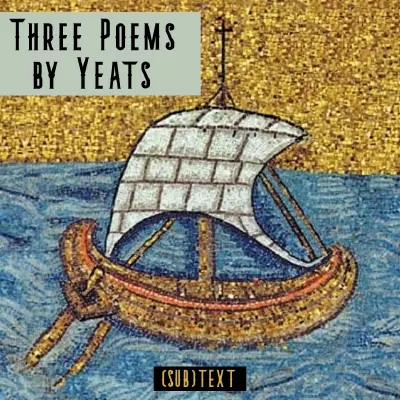June 09, 2025 · 41 min
Yeats’s poem “Sailing to Byzantium” begins and ends with the concept of reproduction. In the first stanza, this reproduction is natural and sexual, and in the final stanza is entirely a matter of artifice. The living songbird is transformed into both product and producer, with a form of singing that is gilded by a consciousness of its departure from nature. Where natural reproduction replenishes entities that are neverthless always in the process of dying, art—the speaker seems to hope—is potentially eternal. And yet the poem’s final stanza also reminds us that art is ultimately for the living, and only as alive as its audience. Wes & Erin discuss Yeats’s meditation on whether creativity can help us transcend mortality, and how artists should conceive of their relationships to nature and posterity.
